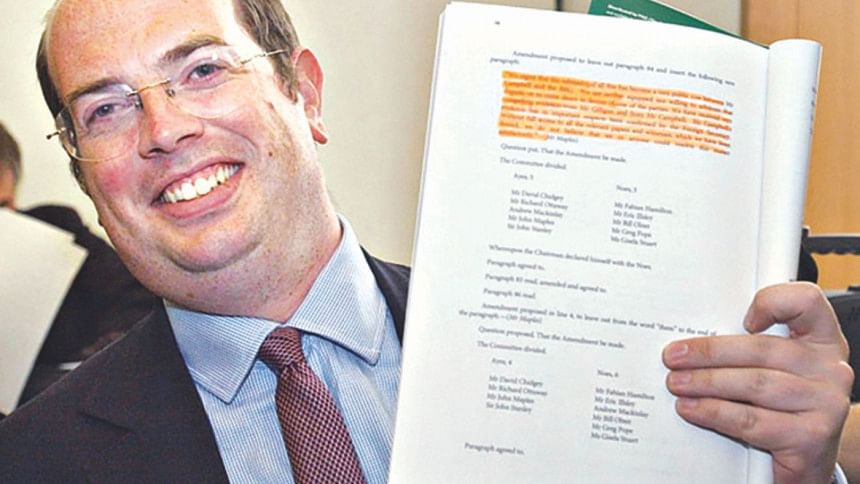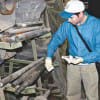A war for oil #8: A win for media, in the end

The saga of the BBC-government row over the 45-minute dossier yielded one universal lesson – in any unjust fight between the media and the government, the government wins in the short run but the media win in the end. The price to pay may be steep as Tony Blair and his companions learnt.
After the BBC first broke the news that the dossier was sexed up, Blair and his top officials fired a collective salvo against the media outlet. It later transpired that Blair and his team knew very well that the document has been tampered with and yet they went on this diatribe to save their backs after the BBC disclosure.
Ironically, the basic point of their criticism – that the BBC story was based on a single source --showed their own moral bankruptcy as it was later proved beyond any doubt that the dossier's claim of Saddam's WMD was itself based on a single source – a taxi driver, a fact that was left out from the dossier and instead claimed the WMD information "came from a reliable and established source, quoting a well-placed senior officer".
Tony Blair, in his diatribe, told the House of Commons on June 4, 2003, "...it was alleged that the source for the 45 minute claim was an Iraqi defector of dubious reliability. He was not an Iraqi defector and he was an established and reliable source."
Adam Ingram, the armed forces minister, came down heavily on the BBC's claim saying: "That was said on the basis of security service information – a single source, it wasn't corroborated".
Blair's spin doctor Campbell, who was said to be behind the doctoring, told the foreign affairs select committee: "I find it incredible …. That people can report based on one single anonymous uncorroborated source."
Ironically, the claim made in the dossier was also based on one single anonymous uncorroborated source quoting another anonymous and dubious source.
The BBC's board of governors, in a statement, defended itself by saying it had followed its guideline in reporting on the dossier. "Although the guidelines say that the BBC should be reluctant to broadcast stories based on a single source, and warn about the dangers of using anonymous sources, they clearly allow for this to be done in exceptional circumstances. Stories based on senior intelligence sources are a case in point." This strong defense did not work in the end for them. The Hutton Commission report, considered as a whitewash for the government's deceits, blamed the BBC for its reporting, leading to the resignation of BBC top brass.
However, as the government realized that its dossier claim was indefensible, it withdrew the controversial 45-minute claim On October 12, 2004.
Despite all these controversy over the reliability of the information, the British foreign secretary Jack Straw defended his government's decision to go to war as correct.
It was the Chilcot Commission, formed after Blair quit office over Iraq controversy, that finally revealed that the dossier was actually unverified and doctored.
Former Joint Intelligence Committee chief Sir John Scarlett admitted to the Chilcot commission that his dossier should have made it clear that the claim that Saddam's capability of deploying weapons within 45 minutes actually did not refer to WMD. But he said it had not been his intention to mislead.

 For all latest news, follow The Daily Star's Google News channel.
For all latest news, follow The Daily Star's Google News channel. 








Comments